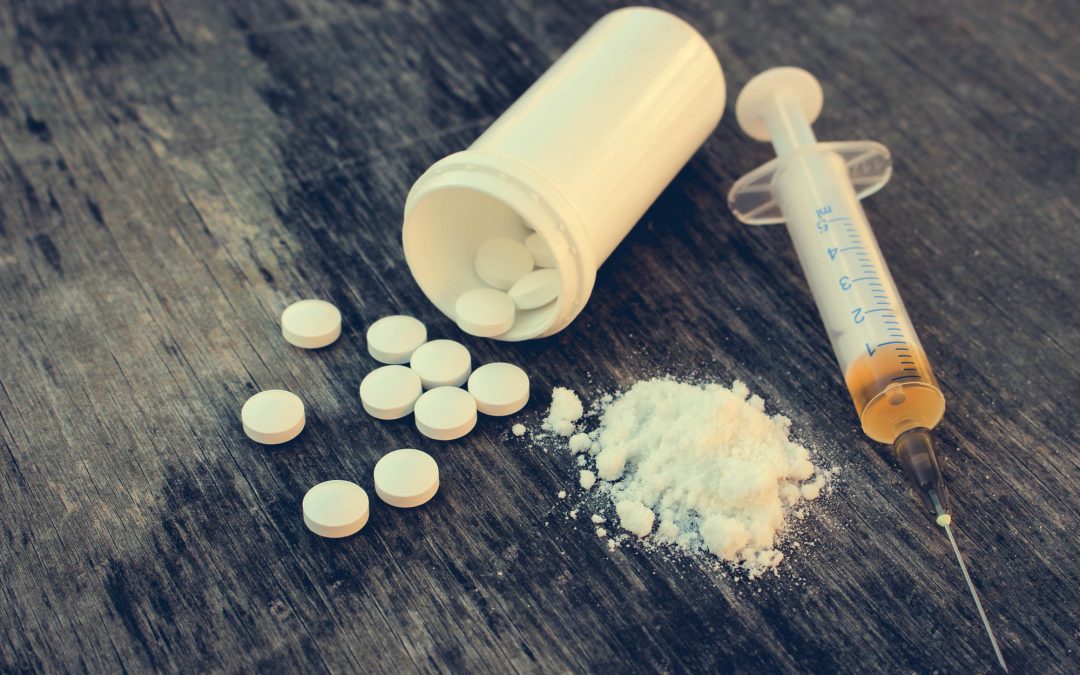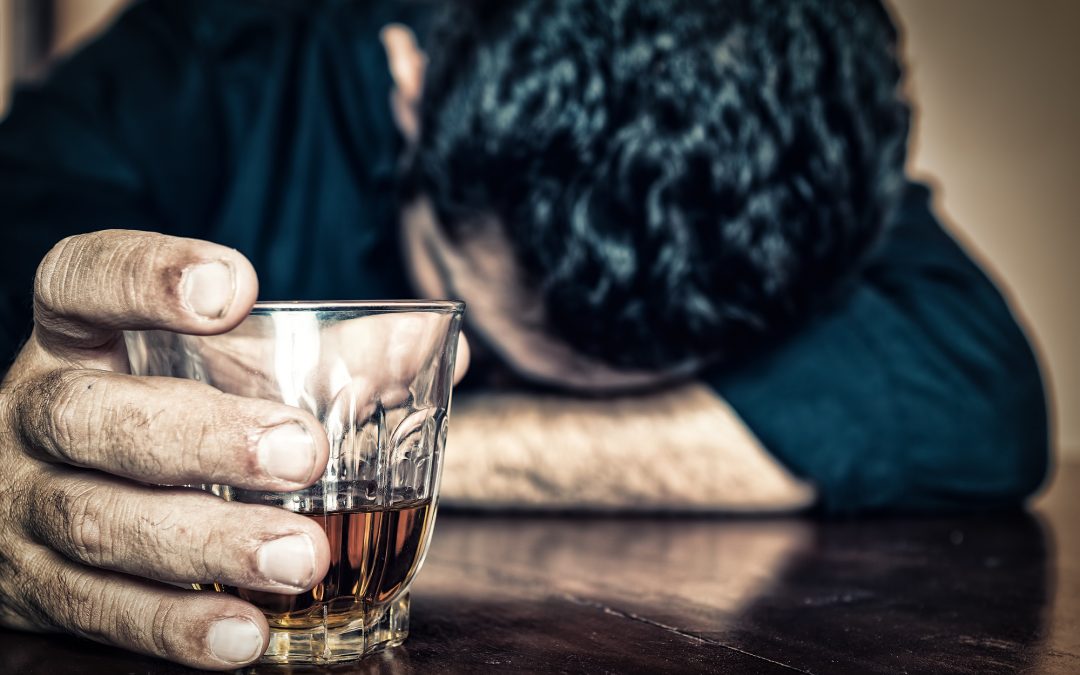
Feb 25, 2019 | Uncategorized
Drug and alcohol dependence is a terrible struggle for people with addictive tendencies. Experts say more than 20 million people use drugs.
Often, those with a drug addiction will also struggle with alcohol. Studies find the number of drug abuse victims who struggle with alcohol is around 80 percent. The reason is that they’re both addictive substances, that affect the brain in the same way.
The Science of Addiction
If you want to know the difference between an addict brain vs a normal brain, follow science. It’s all in the principles of pleasure.
This principle says that rewards such as food, sex, money, and drugs all give off the same stimulation. Pleasure of any kind releases dopamine into the brain.
That’s why drugs and alcohol are so addictive. They create a fast-moving pleasure and reward of dopamine levels. The brain remembers the feeling, which creates more cravings for the substance.
How Does Drug Addiction Work?
It’s rare for you to wake up one day and think “I’m going to become addicted to something.” No one goes about their lives aiming for substance abuse.
The problem with substances like drugs is that they rewire the brains functions. Some drugs, like heroin, work by sending abnormal signals through the cells. This effects how certain areas of the brain perform, leading to addiction.
Alcohol Addiction and the Brain
The trouble with alcohol is that it can be more accessible than drugs. Alcohol is something that can be a casual thing, but for some, it turns into a nightmare. How does alcohol turn into an addiction?
Like other addictive substances, alcohol produces more dopamine as you drink. The trouble with this is that it causes a sort of dopamine resistance in the brain over time. With this, comes the inability to feel a buzz unless you increase your intake.
The Signs of Drug and Alcohol Dependence
The signs aren’t always clear that you or someone you know has a dependence on drugs. It can take a while before you’re aware your intake has created an addiction.
It’s critical to know the signs of dependence:
- Cravings – you need it right now
- Dependence – you can’t feel anything without it
- Money issues – you’re starting to spend too much on substances
- Neglect – you miss work or stop seeing people
- Withdrawal – when you do miss, you get sick or feel pain
These are only a few of the signs you could have a substance abuse problem. It’s a subtle transition, but it’s important to keep an eye on your habits. Going through a detox program is easier if you go at the first signs of a problem.
Getting Help
If you think you or someone you know has a drug and alcohol dependence, you can get help. You should never feel you have to go through this difficult time alone.
At the Nova Vital Recovery Center, we’ll dedicate our time to helping you. Addiction and dependence don’t have to dictate your life anymore. Contact us at to find out more information!

Feb 25, 2019 | Uncategorized
Death by drug overdose is on the rise. Over 70,000 people died in 2017 from overdoses.
Heroin is a dangerous opioid that comes from the poppy plant. It is often injected, inhaled, or smoked. Use and abuse of heroin are so deadly because users consistently seek out higher doses to feel the same rush.
Concerned about someone in your life? Think they may be hiding a drug problem? Keep reading below for three signs of heroin use you should be on the lookout for.
1. Behavioral Changes
There are many changes in behavior due to heroin use you may notice before other signs. Someone dealing with an addiction may suddenly start avoiding friends and family. This is especially likely if people have started to ask questions.
You should also keep watch for a decrease in personal hygiene, an increase of sleeping, and a general lack of motivation. With a lack of motivation, someone may also start struggling at work or with school.
Other behavioral signs of a drug problem include constant lying, slurred speech, and going back and forth between hyperactivity and tiredness.
If you have access to their room or home, keep an eye out for things like burned spoons, glass pipes, or syringes. If you do find some of these items, you may want to consider an inpatient program.
2. Mood Signs of Heroin Use
Someone abusing heroin may also exhibit mood changes. Rapid mood swings and depression are very common in addicts. Look for periods of euphoria as well.
A person struggling with drugs may also lash out at you and other loved ones. They will often blame you for any and all of your problems.
If they are going through even a temporary withdrawal, be prepared for increased agitation and irritability.
Other more serious and scary signs of a heroin problem include delusions and hallucinations. These can be scary as people won’t realize they are occurring.
Be on the watch for signs of paranoia and disorientation as well. Your loved one may become highly suspicious of anyone around them and believe they are always being watched.
3. Physical Clues
Track marks on legs or arms are one of the biggest physical clues your loved one may be struggling. Be suspicious if someone wears long sleeves even in the heat. They may be concealing their track marks.
Other physical signs include a running nose, nausea or vomiting, and constricted pupils. Also, be mindful of sudden weight loss or an increase in scabs or bruises. The latter two can happen from someone picking at their skin due to itchiness.
Help Your Loved Ones by Knowing the Signs
Having suspicions that someone close to you is struggling with drugs is a scary thought. Knowing some of the signs of heroin use can be helpful in identifying an issue before it gets serious.
Be their friend. Be their loved one. Be their hero.
Ready to find out more information? Want to talk to a professional? Please contact us to learn more.

Feb 25, 2019 | Uncategorized
Did you know that over 4 million Americans seek substance abuse treatment every year?
Despite those numbers, 90% of people who need alcohol or drug rehabilitation don’t receive it.
If you or a loved one is struggling with addiction, you probably have a lot of questions. What is rehab, exactly? How does it work? And is it the right solution for you?
Read on to learn the answers to these important questions.
What Is Rehab?
Alcohol or drug rehab has three main objectives:
- To rid your body of harmful substances.
- To help you cope with the withdrawal process.
- To equip you to lead a healthy life free of addiction.
More than a short program, the goal of rehab is to help you achieve long-term sobriety and a clean lifestyle. Under medical supervision, you’ll work through the different phases of the recovery process.
The initial detox phase is really only the beginning. Overcoming your chemical dependence is one thing, but making a long-term commitment to stay clean is another.
Don’t worry–there will be help available to you every step of the way,
How Does Rehab Work?
Depending on the severity of your addiction, you may have the option of either an outpatient or inpatient program.
Outpatient Treatment
If your addiction is mild to moderate, you may be a good candidate for an outpatient program. Your initial detox may take place at a hospital, outpatient treatment facility, or a rehab center.
During the process, your body will go through a series of withdrawal symptoms. To help ease the symptoms, you may receive pharmaceutical therapies, IV fluids, or nutritional support. Counseling, both privately and in a group setting, is also a common component of rehab.
Outpatient treatment is best for people who are highly motivated and committed to the recovery process. It allows you to keep working and stay active in your current social circle.
Inpatient Treatment
On the other hand, those with severe addiction may need to consider an inpatient program. These are designed for people who have had complications with withdrawal symptoms in the past or serious medical conditions. This is also the best option for anyone prone to relapse in their usual environment.
Inpatient rehab programs may last anywhere from a few weeks to a few months. During that time, your physical health and symptoms will be closely monitored. You’ll also receive intensive counseling to help you through your withdrawal symptoms.
Inpatient programs typically cost more than outpatients programs, but the cost is worth it if you need extra support.
One important thing to note is that there are no locks on the doors. When you commit to a rehab program, you do so willingly, and no one can force you to stay there.
After all, you’ll need that same motivation if you’re going to stay clean and sober in the future.
Is Rehab Right for You?
So, what is rehab?
It’s not just something that can improve your life–it has the power to save it.
Here at Nova Vital Recovery, we’re proud to offer treatment plans for both alcohol rehab and heroin rehab.
Kamagra tablets and jelly are not inferior and, in some respects, even superior to other known drugs for treating EDhttps://viagra-buy.com/f/kamagra or 30–60 minutes for tablets from 20 minutes for jelly
It’s time to take that all-important first step on the road to recovery. Please contact us today with any questions or concerns.

Feb 21, 2019 | Uncategorized
A glass of wine after a long day or a round of drinks with friends to celebrate can be great ways to unwind. In fact, each year, the average adult in the United States will consume over eight liters of alcohol.
But too much of a good thing can cause major problems.
If you or a loved one seem to be drinking more than normal, you may become reliant on alcohol. This condition, known as alcohol dependence, can affect almost every aspect of your life.
Keep reading for some telltale signs of alcohol dependence, as well as tips on what you can do to seek help.
Increased Tolerance
Everyone feels the buzz associated with alcohol at a different point based on a variety of factors such as weight, height, athletic tendencies, and more.
But if you drink on a regular basis, your tolerance will slowly increase regardless of these factors. Where it once took you two drinks to feel a buzz, it now may take four or five.
This increased tolerance comes with major risks. You may think you’re fine to drive, for instance, putting your life and the lives of others at risk. You may also cause extreme harm to your liver, which can ultimately lead to disease or liver failure.
Slow down. If it’s taking more drinks to feel the effects of drinks, you may be addicted to alcohol.
Use of Alcohol as a Coping Mechanism
In truth, everyone self-medicates in one fashion or another. With that said, some techniques and habits are healthier than others.
Running, for instance, is a healthy way to reduce stress. Drinking, on the other hand, is quite the opposite.
Next time you or a loved one ingest multiple drinks, check your reasoning. If you’re doing so to hide a feeling or cope with something, that’s a sign of a bigger issue.
Behavioral Changes
Alcohol doesn’t only affect the liver, it affects the brain, too. Much of the damage caused by alcohol is even permanent.
Regular excessive drinking can impact a person’s ability to speak and think, and can also impair motor functions like reaction time and walking.
Over time, regular use can even change the brain’s chemistry, worsening pre-existing symptoms of mood conditions like depression or anxiety.
Changes in Appearance
Behavioral changes aren’t the only manifestations to keep an eye out for. A person’s physical appearance changes when they’re addicted to alcohol, as well.
Facial swelling, dry skin, and yellowed eyes and skin (caused by liver damage) are just some of the dangerous symptoms to look for. Over time, many of these symptoms worsen, causing a person to become almost unrecognizable.
Should a person try and detox to quit, other symptoms like shaking, frequent headaches, and blurred vision may occur.
What to do About Alcohol Dependence
If you or a loved one struggle with alcohol dependence, understand that there is hope for a better life. There’s no shame in asking for help, and doing so just may save your life.
Watch out for these signs. And should you need assistance recovering, take the first step toward a better life by contacting us today.





Recent Comments